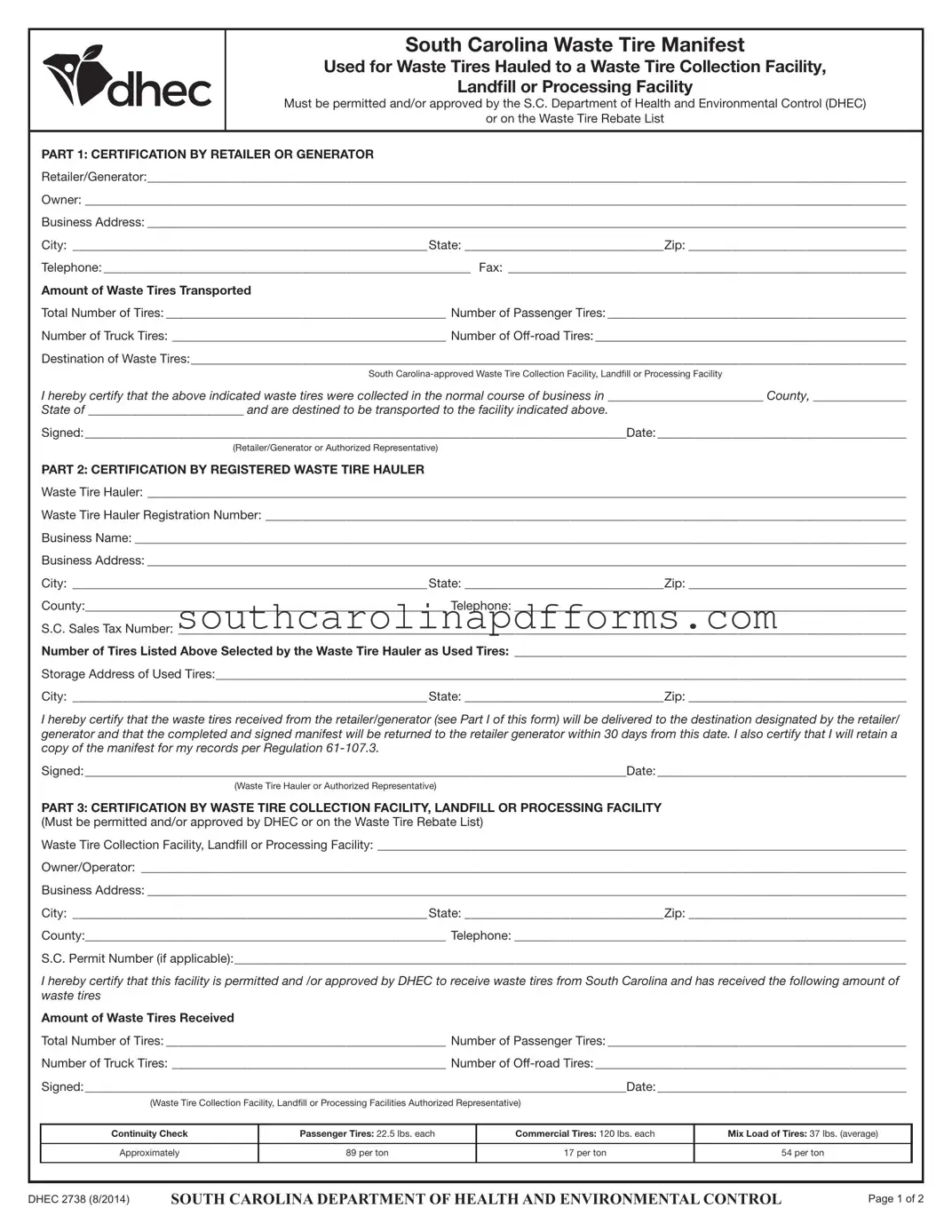The DHEC 2738 form is an essential document for managing waste tires in South Carolina. It serves as a manifest to track the transportation of waste tires from retailers or generators to approved waste tire collection facilities, landfills, or processing facilities. This form is crucial for compliance with state regulations, ensuring that all parties involved in the disposal process adhere to the guidelines set forth by the South Carolina Department of Health and Environmental Control (DHEC). The form is divided into three parts: the first part requires certification from the retailer or generator, detailing the number and type of waste tires being transported. The second part involves certification by the waste tire hauler, who must confirm the tires will be delivered to the designated facility and maintain a copy of the manifest for record-keeping. Finally, the third part is completed by the receiving facility, which certifies its approval by DHEC to accept waste tires. Each section of the form plays a vital role in documenting the journey of waste tires, thereby promoting responsible waste management practices in the state.
